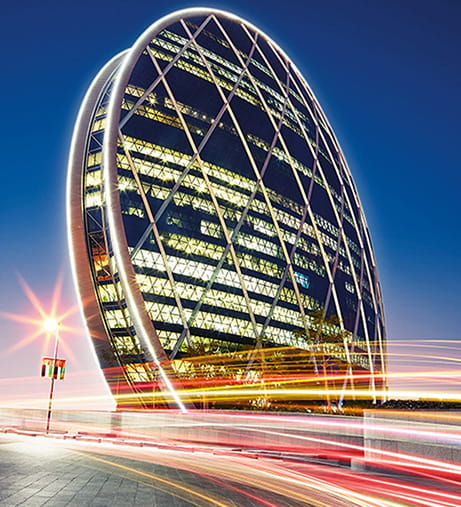#Featured
October 11, 2023
Green Homes: The Future of Sustainable Living
Sustainability encompasses three key dimensions: environment, economy, and social life. However, the primary focus is on the environment, which addresses critical issues such as climate change, biodiversity, and air and water pollution. Adopting a sustainable lifestyle is both a collective and individual responsibility. Taking the necessary steps toward it aids in revitalising the green world and ensures that you live in a clean environment.
Here are some ways to be sustainable in everyday life by effectively using environmental resources in your home to transform it into an eco-friendly house.
Water Sustainability
We must change our lifestyle to reduce water wastage and pollution due to the increasing scarcity of this vital resource. Some changes we can make include:
1. Regular Maintenance of Water Systems
Water sustainability hinges on valuing every drop like it’s a priceless gem. To uphold this, regular maintenance of the following is essential:
- Taps (or Faucets)
- Supply pipes
- Showerheads
- Hoses
2. Water-Efficient Devices
Devices specifically designed to regulate water consumption exist. These include efficient showerheads and flow control mechanisms that can be fitted onto kitchen and bathroom taps.
3. Optimal Use of Appliances
Only run your washing machine and dishwasher when they’re full. Interestingly, they tend to consume a consistent amount of water, no matter the size of the load.
4. Mindful Shower Habits
While relaxing in a bubble bath sounds lovely, sticking to showers is a more eco-conscious way of preserving water. We suggest taking short showers and being mindful of when the water is running (for example, you can limit running the shower to when you’re rinsing your shampoo and conditioner).
Sustainability in Electricity
There’s an array of eco-friendly strategies to decrease electricity consumption.
1. Monitor Energy Consumption
Smart energy meters are invaluable tools. They measure your home’s energy usage and provide digital reports to your electricity provider. This digital approach ensures greater accuracy over manual readings, letting you keep a keen eye on your energy habits.
2. Energy-Efficient Appliances
It’s not just about using energy-saving bulbs. Consider investing in appliances designed with green energy-saving systems, like specific models of dishwashers, washing machines, refrigerators, and air conditioners.
3. Mindful Energy Consumption
Be conscious of lighting in unused rooms and avoid excessive brightness. Also, unplug devices when they’re not in use. With advancements in artificial intelligence, you can now link all devices and lights in your eco house to your smartphone, offering control from a unified platform.
Taking it a step up, if you have an electric car, you can manage how often you charge the vehicle. Contrary to popular belief, keeping your charger connected once it’s fully charged is neither good nor bad, as it doesn’t affect your electric bills. But to stay safe, you can download an app that will notify you when charging is complete.
4. Harnessing Solar Power
Solar panels offer a greener alternative to conventional electricity sources. By converting sunlight into electrical power, they diminish our reliance on fossil fuels. Over time, this will become a smart choice for creating an environmentally friendly and cost-saving house.
5. Insulating Your Home
Heat loss can significantly impact energy efficiency. A startling fact is that homes can lose nearly half their heat through non-insulated roofs. If you prioritise thermal insulation during construction or as an upgrade, you safeguard against wasting energy, be it for cooling during summer or heating in winter.
Organic Material Sustainability
Environmental sustainability plans encourage embracing organic materials; here are some practical ways to leverage them:
1. Repurposing Leftover Food
The potential to reuse plant-based leftovers is vast. For instance, fresh vegetable peels can be sun-dried and ground to create aromatic spices for your dishes. Beyond that, rotten fruits and vegetables can be used as organic compost, enriching your plants with vital nutrients. This helps manage the amount of solid waste from your home, reducing methane emissions from incinerating waste in landfills.
2. Mindful Selection of Decor and Flooring
While wood carries a natural charm, numerous alternatives encapsulate its warmth and aesthetic. Consider parquet tiles, which deliver the allure of wood without the environmental cost. If your heart is set on wood, opt for recycled wood flooring.
Waste Reduction Strategies
There are numerous approaches to minimise waste:
1. Shift Away from Plastic
Most plastics are challenging to recycle and often single-use. Transitioning to sustainable alternatives can make a world of difference. Options include:
- Reusable glass water bottles
- Cloth shopping bags
- Beeswax wraps for food
- Glass containers with wooden lids
- Glass or stainless-steel straws
2. Paperless Living
The digital age has presented alternatives to traditional paper. There’s no longer a pressing need for physical papers or printed books. Download and store them on your digital devices.
Understanding Green Homes
Green homes stand out as paragons of eco-friendliness. Meticulously designed, they adhere strictly to sustainability blueprints, conserving the environment and economising resources. Green homes boast features such as:
- Eco-conscious flooring
- Wall and roof thermal insulation
- Double-glazed windows for optimised insulation
- Intelligent thermostats for accurate temperature management
- AI-powered electrical systems controlled via smartphones
- Paints devoid of volatile organic compounds
- Energy-conserving lighting fixtures
- Superior ventilation systems
Beyond these features, green homes are crafted with a keen eye on natural light paths and sun angles. Their gardens not only offer shade but also play host to a variety of environmentally beneficial plants.
Are you considering a sustainable future in a green home? Explore Aldar’s offerings and start your journey towards a greener living.

